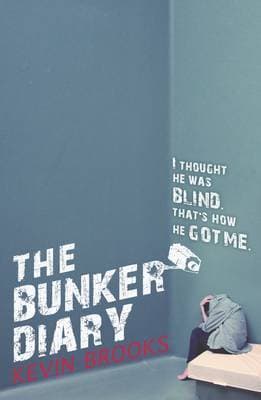
Book Review Summary: The Bunker Diary
Introduction
"The Bunker Diary" by Kevin Brooks is a gripping and thought-provoking novel that explores the darkest aspects of human nature. The story follows the protagonist, Linus, who is abducted and imprisoned in a bunker with five other individuals. As the days pass, tensions rise, and the characters' desperation for food, water, and light becomes palpable. The book delves into themes of survival, psychological trauma, and the human capacity for both cruelty and kindness.
About Kevin Brooks
Kevin Brooks, the author of "The Bunker Diary," is a renowned British writer known for his ability to craft intense and thought-provoking stories. Born in 1959, Brooks grew up in Exeter, Devon, England, and studied Psychology and Philosophy at Birmingham, Aston University in 1980 and Cultural Studies in London in 1983. He has had a diverse career, including working as a musician, gas station attendant, crematorium handyman, civil service clerk, hot dog vendor at the London Zoo, post office clerk, and railway ticket office clerk. Brooks' writing career began with the publication of "Martyn Pig" in 2002 through The Chicken House, which won the Branford Boase Award 2003 and was shortlisted for the Carnegie Medal. He has since published numerous other books that have received critical acclaim.
Analysis of Views
-
Brutal and Intense: Many readers describe "The Bunker Diary" as a brutal and intense book that delves deep into the darkest aspects of human nature. The depictions of violence and hopelessness are said to be shocking and unforgettable.
-
Pensive and Heart-Breaking: The book evokes a sense of pensive introspection, as readers reflect on the themes of survival, trust, and human connection. The emotional impact of the story is described as heart-breaking and deeply affecting.
-
Mystery and Suspense: The book's mystery and suspense elements keep readers engaged throughout. The revelations about the characters' pasts and motivations add depth to the story, making it difficult to predict what will happen next.
-
Horrific and Unbelievable: Some readers find the book's depictions of violence and abuse to be horrific and difficult to stomach. The lack of a clear resolution or explanation for certain events adds to the sense of unease and uncertainty.
-
Engaging Narrative: Brooks' writing style is praised for its engaging narrative that mirrors the protagonist's thoughts and emotions. The first-person perspective allows readers to connect with Linus on a deeper level, making the story more immersive and emotionally impactful.
Reasons for Recommendation
-
Intense and Thought-Provoking: Readers recommend "The Bunker Diary" for its intense and thought-provoking nature. The book challenges readers to confront their own beliefs about human nature and the lengths people will go to survive.
-
Well-Crafted Writing: Brooks' writing style is praised for its skillful execution. The author's ability to create a gripping narrative while exploring complex themes is highly appreciated by readers.
-
Emotional Impact: The emotional impact of "The Bunker Diary" is considered a significant reason for its recommendation. Readers find themselves invested in the characters' fates and feel deeply affected by their struggles and triumphs.
Reasons for Not Recommendation
-
Disturbing Content: Some readers find the book's depictions of violence and abuse to be disturbing and unsettling. They recommend caution when reading due to the graphic nature of certain scenes.
-
Lack of Resolution: Some readers feel that the book lacks a satisfying resolution or explanation for certain events. They find the ending unsatisfying and feel that certain aspects of the story remain unresolved or unexplained.
Conclusion
"The Bunker Diary" by Kevin Brooks is a thought-provoking novel that delves into the darkest aspects of human nature. With its intense narrative, complex themes, and emotional impact, it has garnered both praise and criticism from readers. While some find it brutal and disturbing, others appreciate its intense exploration of survival, trust, and human connection. Ultimately, whether or not one recommends this book depends on their personal preferences and willingness to confront difficult themes.